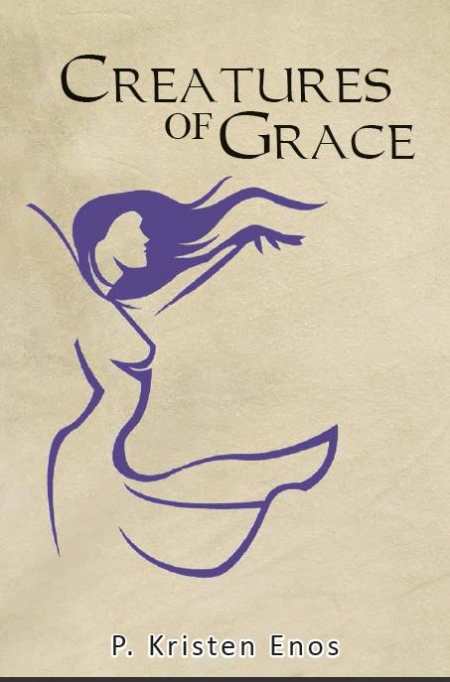Creatures of Grace
Fairy tales for our own time go all medieval on anti-gay, anti-transgender attitudes.
For those fed up with the rigid stereotypes and gender roles common in the fantasy genre, Creatures of Grace is a clever, inventive, and thought-provoking collection of short stories from experienced writer and lesbian activist P. Kristen Enos. In her latest book, Enos takes the medieval fairy-tale world in new directions.
Among the expected tales of royalty, knights, servants, and romance exists a world where same-gender attraction is taboo, yet characters act on their feelings anyway, and one’s husband can in fact be a woman who binds her breasts and takes a masculine name. In the stories where cross-dressing becomes obvious, transgender people defend the persecuted without the tormentors knowing the saviors are transgender. For example, “Road Not Taken” pits a dress-wearing man named Juliette and his female sword-wielding rescuers against homophobic tormentors.
In addition to breaking gender barriers, Creatures of Grace also examines the joy and treachery of love while simultaneously critiquing the hypocrisy of religion regarding gay people. In her introduction, Enos states that she uses the term “creatures of grace” to refer to all women. In a testament to her powerful storytelling ability, the author imbues the titular character of Franchesca, an abused wife, with beauty and fortitude, even as she lives in terror. After faking her own death while recovering from a beating that nearly killed her, Franchesca agrees to live in hiding in housing arranged by a friend. She tells her confidante calmly, “‘I’m fine as long as I’m never in the same room with him again.’”
In “All Things Equal,” lesbian Countess Vivica critiques the doctrine of the White Church as the religion spreads throughout the land: “‘There are a lot of other “instructions,”…like how you should not touch a member of the same gender in a sexual manner. You and I both know you love your men as much as I love my women,’” she reminds her royal male friend. In response, he tells her not to worry, because the White Church appeals to commoners who “need to be given instructions on how to conduct themselves.” Quotes such as this critique the subtle classism Enos sees in religion. Bringing up such issues in the context of a timeless fairy tale makes these topics seem even more relevant to today.
For added enjoyment, the characters in each story are somehow connected, whether by blood or by previous interactions. This element keeps the pages turning—readers learn that Donna, a swashbuckling pirate captain from an earlier tale, becomes a slave later on. Enos’ characters are so well developed that it is sad to leave them when stories end, but a thrill to have some make return visits.
Enos promises more installments in this series, so hopefully readers will not have to wait long for the next group of graceful creatures.
Reviewed by
Jill Allen
Disclosure: This article is not an endorsement, but a review. The publisher of this book provided free copies of the book and paid a small fee to have their book reviewed by a professional reviewer. Foreword Reviews and Clarion Reviews make no guarantee that the publisher will receive a positive review. Foreword Magazine, Inc. is disclosing this in accordance with the Federal Trade Commission’s 16 CFR, Part 255.

